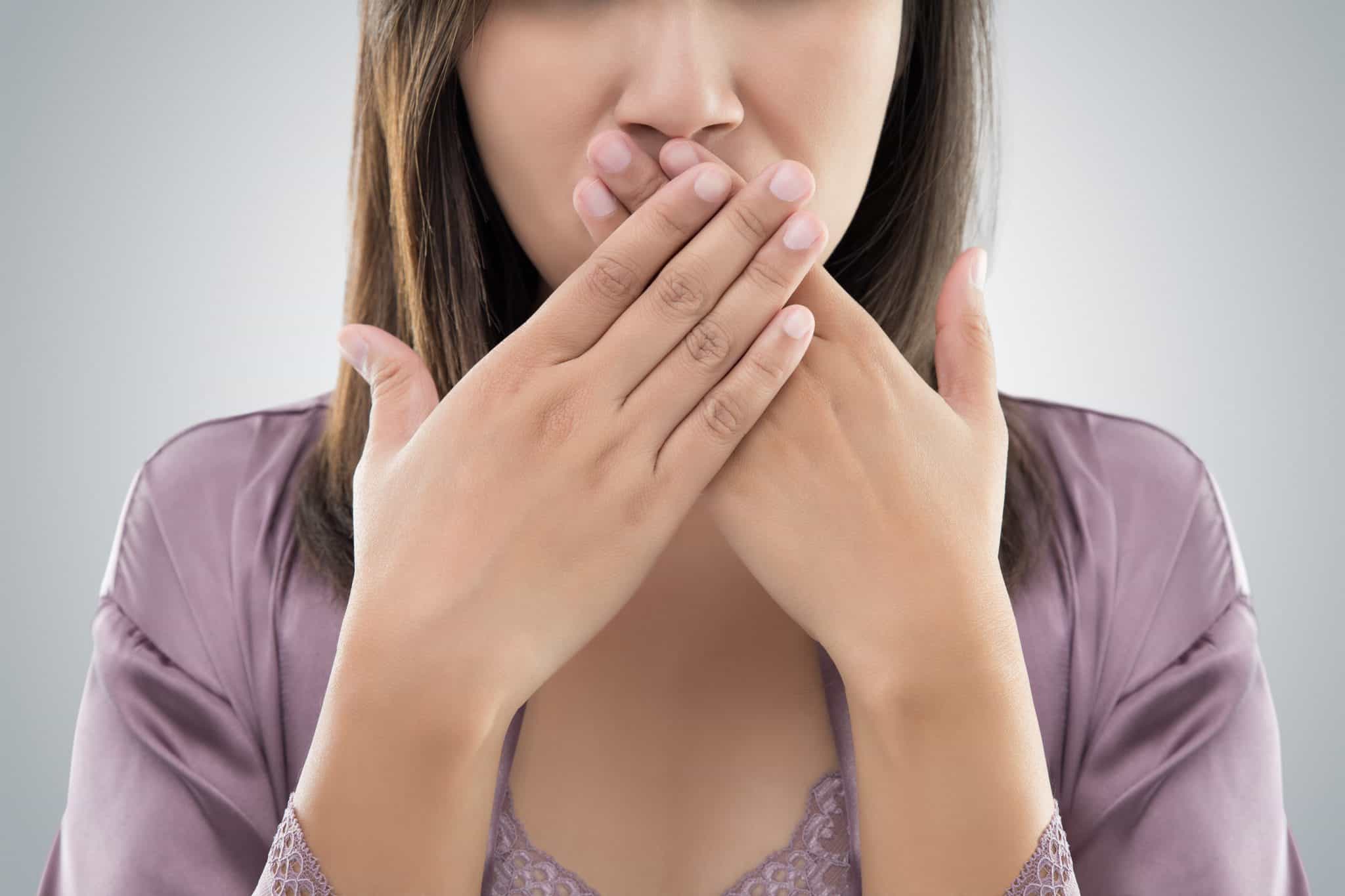90% of bad breath is the result of plaque, a perfect, sticky home for harmful bacteria to multiply up to 600x faster compared to living outside the plaque. As with all living things, bacteria eats, then “poops”, properly called a bacteria’s by-product.
The more plaque. The more bacteria. The more poop. The more odor.
To conquer plaque in the name of fresh breath, we use our toothbrush and floss daily to remove the initial and necessary first sticky layer of plaque called biofilm. The goal is to clean off the biofilm/plaque at a rate that is quicker than bacteria can make it. By doing this we keep the bacteria at square one. Starting over. It just so happens brushing and flossing remove remnants of our meals. This means less available food for the bacteria, and eliminates odors from decomposing foods.
If plaque is the culprit of halitosis the majority of the time, then it makes sense the goal is to be plaque-free.
5 Kissable DAILY Habits
Next time, you will KNOW, the someone with breath odor is NOT you.
1. Brush your teeth two times a day.
Once in the morning, Once at night, for 2 minutes each time.
Think of plaque as sticky as peanut butter. Imagine peanut butter on a butter knife, its sticky, and resists removal. Unlike a smooth butter knife, teeth have different shapes, crevices, and can be difficult to access. There are many effective kinds of toothpaste to choose from, providing added benefits for oral health. The American Dental Association encourages daily habits
[https://www.mouthhealthy.org/en/az-topics/b/brushing-your-teeth](https://www.mouthhealthy.org/en/az-topics/b/brushing-your-teeth)
2. Floss daily.
Brushing is not enough to remove the sticky bacteria from between the teeth. Teeth are curvy, and floss is the hero, the hero that can snugly hug and curve around the teeth, for the best at home in-between the teeth cleaning.
*cleaning between the teeth can be accomplished by correctly using a variety of available interdental (between the teeth) tools. What are you most likely to use daily?
3. A therapeutic mouth rinse.
Antiseptic mouthwash helps to control harmful bacteria levels. Therapeutic rinses have many purposes including: kill harmful bacteria, restore neutral ph, fluoride, desensitizing, and whitening to name a few. Remember, rinses don’t replace brushing or flossing. However, it is next-level care when adding a rinse to daily brushing AND flossing.
[https://www.mouthhealthy.org/en/az-topics/m/mouthwash](https://www.mouthhealthy.org/en/az-topics/m/mouthwash)
4.Tongue Scraping.
This frequency will be different for everyone, because the tongue has a surface perfect for harboring bacteria, some more than most (think wet Berber carpet vs wet shag rug). Often the back of the tongue is missed, which can have high bacteria counts responsible for odors. If halitosis is a concern, don’t overlook the tongue!
Here at Bennett Dublin Dental, we tend to favor the tongue scraper made by Breath Rx.
5. Stay Hydrated!
Drink your minimum 8 cups of water every day! Morning breath is usually a result of decreased saliva production while we sleep. Dry Mouth contributes to odors vs. staying hydrated can help with saliva flow, our body’s way of cleansing our mouth.
*Dry mouth can also be the result of medications and/or health issues. Your dental team will have recommendations to manage chronic dry mouth issues.
When Halitosis Persists
For 10% of you, halitosis will persist even after a committed daily oral home care regimen. We recommend seeing your primary dr to determine possible underlying causes including, but not limited to: digestive issues, diabetes, or GERD.
With malodorous breath being a symptom of many health issues and medications, it’s important to talk to your doctor or dentist. Your body could be trying to tell you something.

